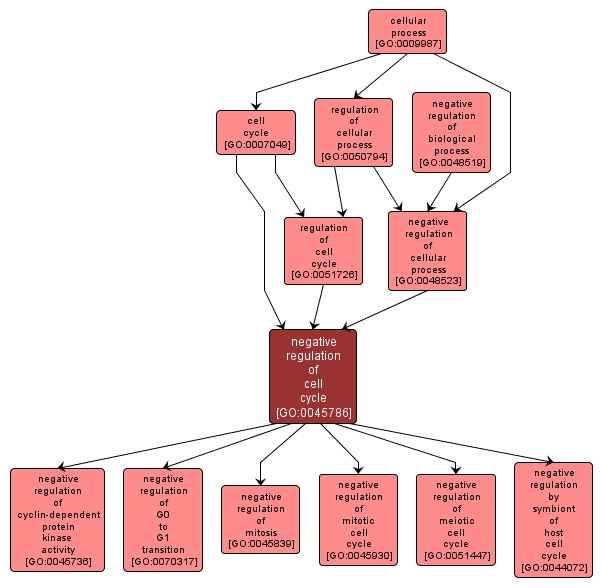GO TERM SUMMARY
|
| Name: |
negative regulation of cell cycle |
| Acc: |
GO:0045786 |
| Aspect: |
Biological Process |
| Desc: |
Any process that stops, prevents or reduces the rate or extent of progression through the cell cycle. |
Synonyms:
- negative regulation of cell cycle progression
- down-regulation of progression through cell cycle
- negative regulation of progression through cell cycle
- down regulation of progression through cell cycle
- downregulation of progression through cell cycle
- inhibition of progression through cell cycle
|
|

|
INTERACTIVE GO GRAPH
|














